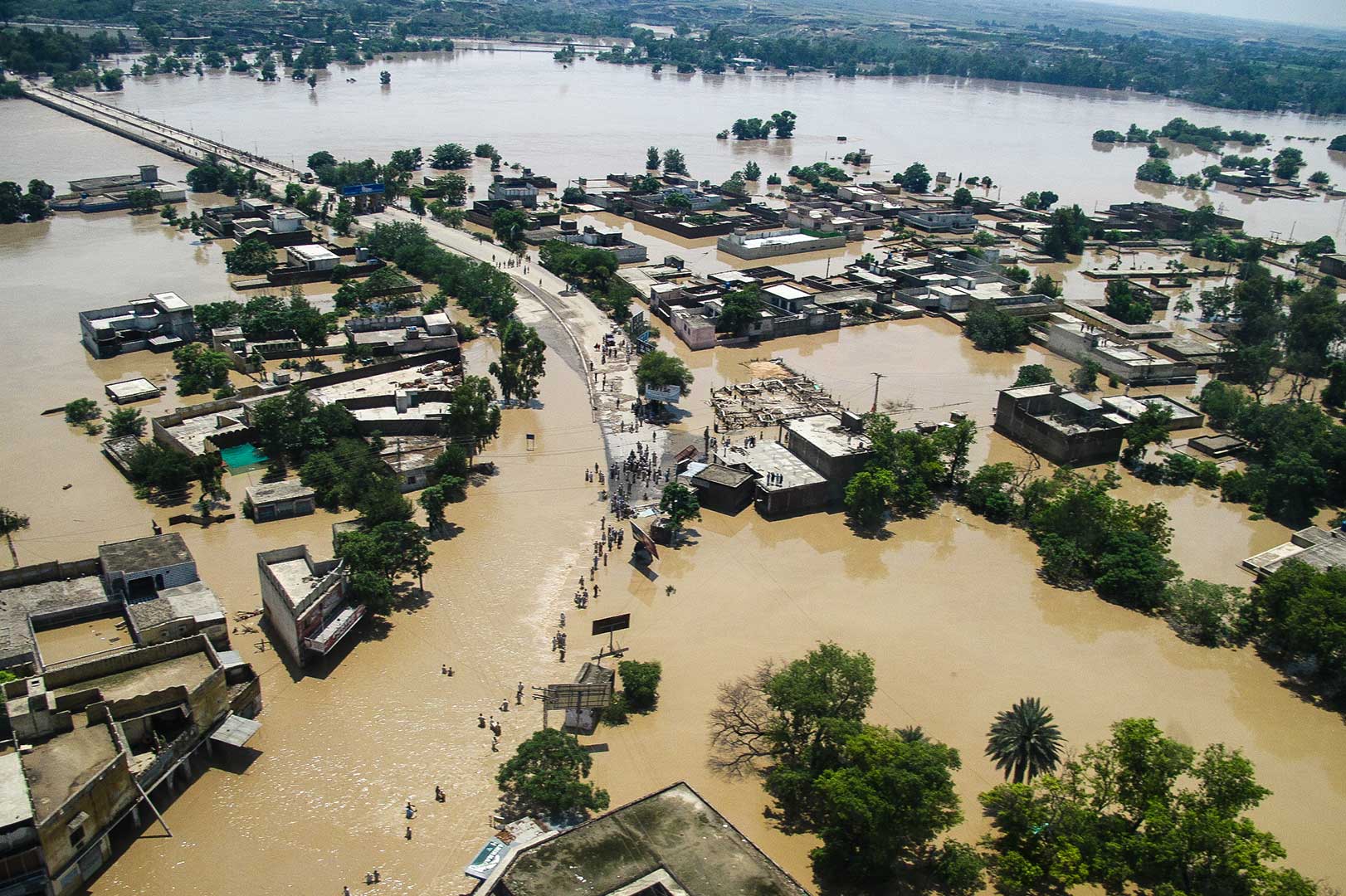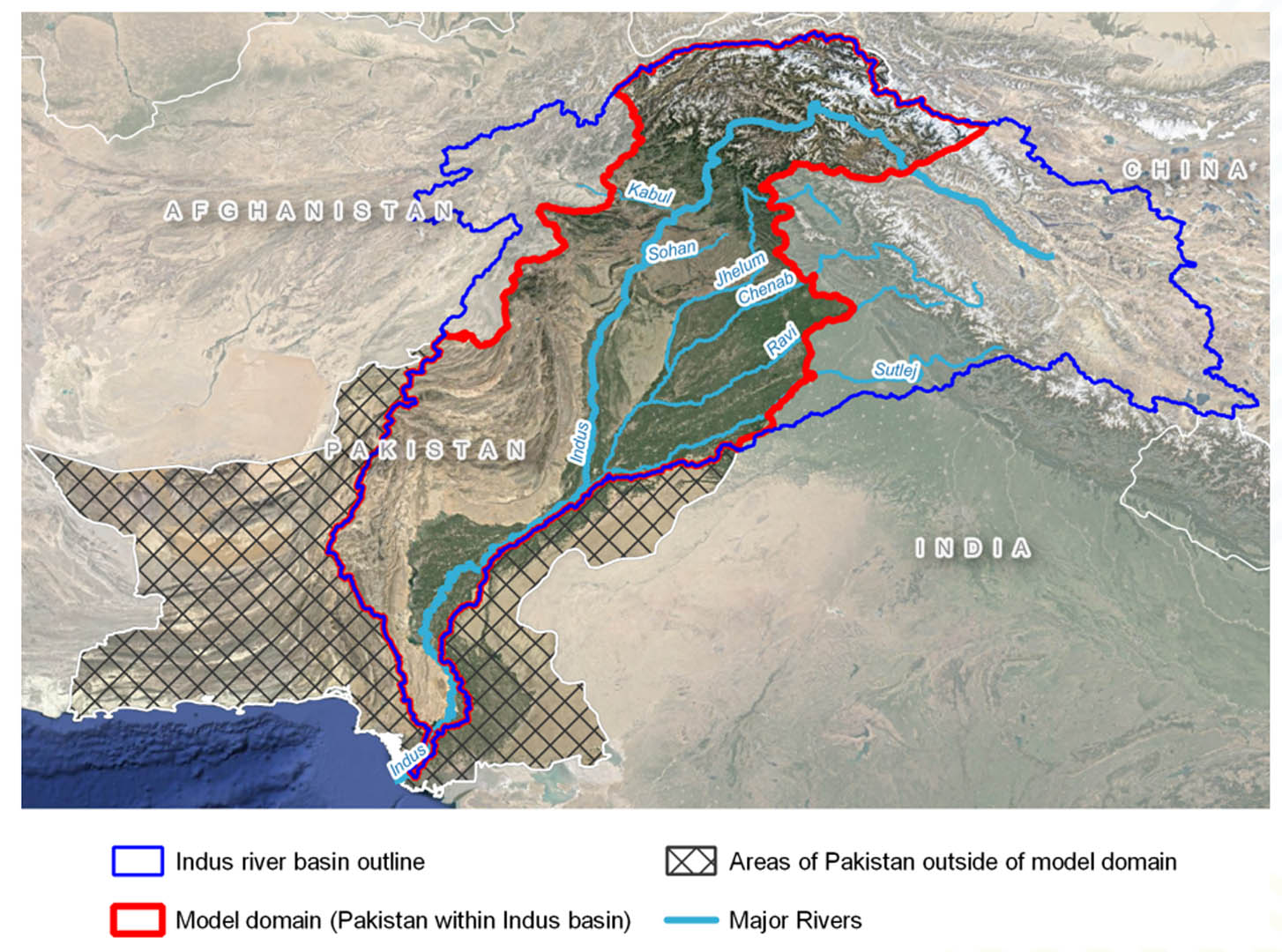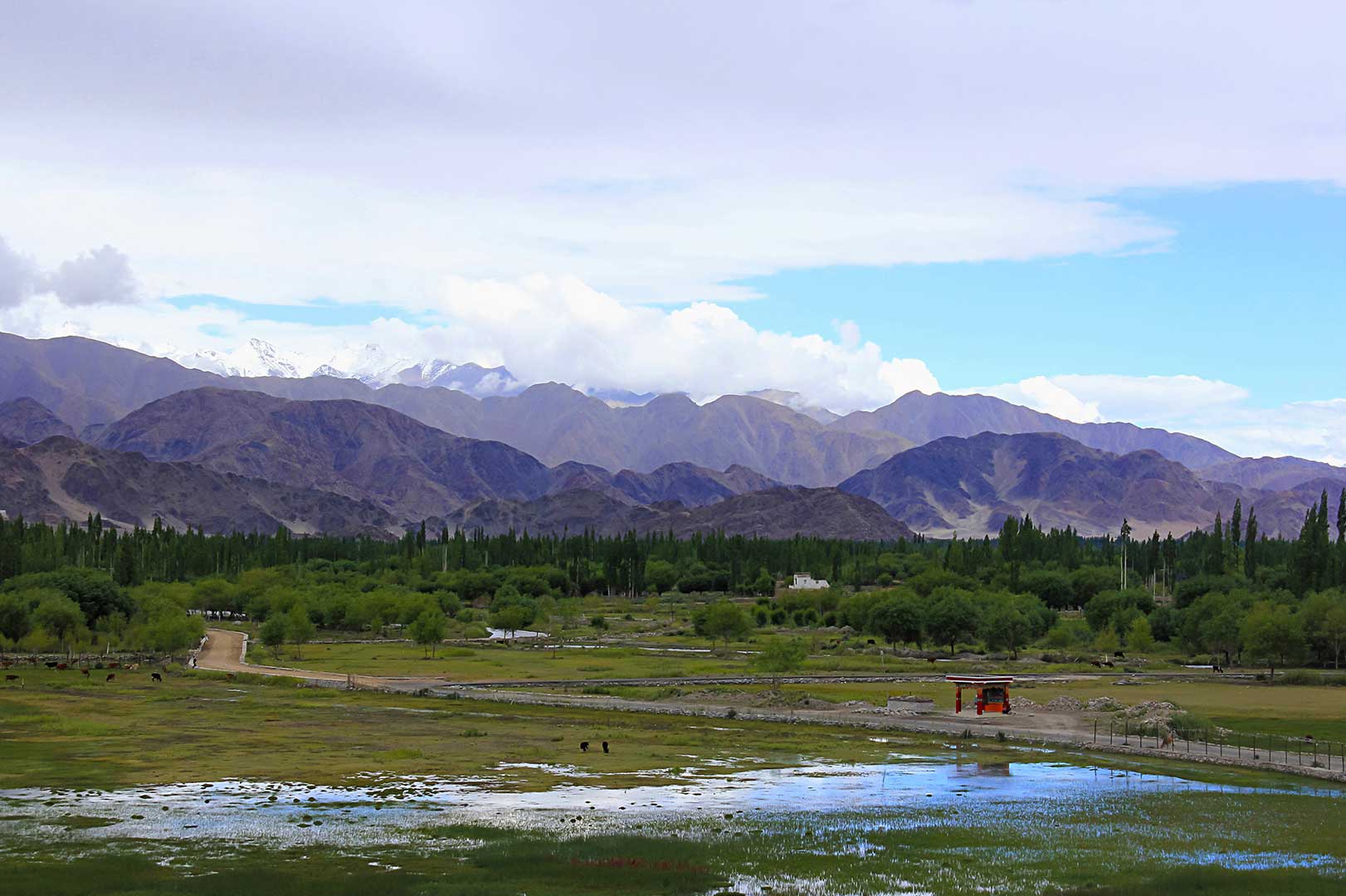Supporting vulnerable communities to be better prepared and more resilient to the impacts of climate change
As part of their development of a Disaster Risk Financing system in Pakistan, The Start Network selected us to provide technical modelling expertise to develop a real-time and forecast flood model that could estimate populations in each district of Pakistan likely to be impacted by flooding.
This is one of a number of risk and forecast modelling solutions being deployed by us to support humanitarian and financial early action (including parametric insurance) and reduce the overall impacts of climate change.
- Client Start Network
- Location Indus River basin, Pakistan
- Services
Proactively reducing the impact of climate risks
The Start Network, with its membership of over 50 aid agencies, is developing a Disaster Risk Financing system in Pakistan, to allow civil society actors in-country to proactively manage climate risks such as droughts, heatwaves, and floods. Their aim is to reduce the impacts of weather extremes and disasters by quantifying risks in advance of disasters, pre-positioning and releasing funds according to pre-agreed plans, enabling earlier action, reducing the costs of disasters and increasing climate resilience.

A fully automated early warning system to reduce humanitarian impact
We were able to draw on several existing models and datasets to deploy an initial flood impact forecasting system within two months of project initiation. We used the JBA Global Flood Model to quantify flood risk to the population through a probabilistic catastrophe risk model.
For forecasting population impacts, we coupled the Copernicus Global Flood Awareness System (GloFAS) with our Flood Foresight technology to generate daily probabilistic forecasts of flood inundation extents and depths. From these digital maps, we were able to estimate the population at risk in the short, medium and long term.


Find out more about JBA's Global Flood Maps here.





